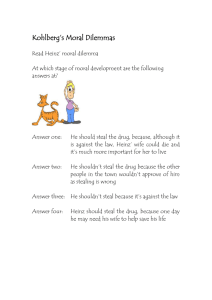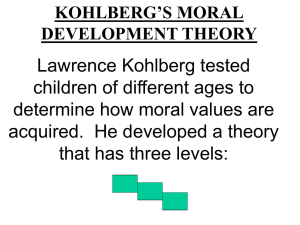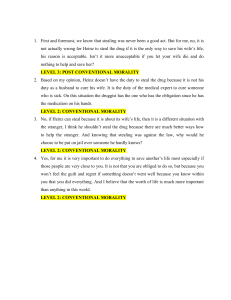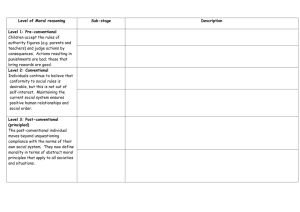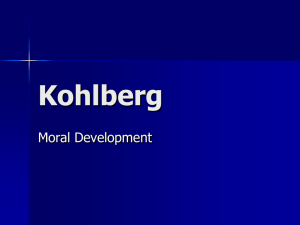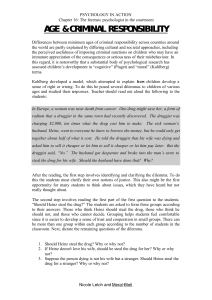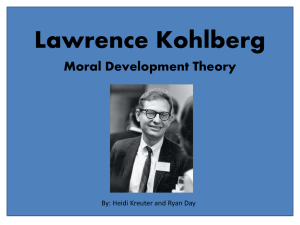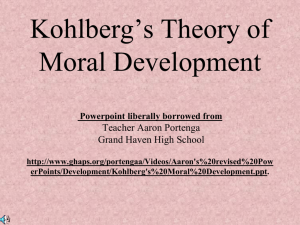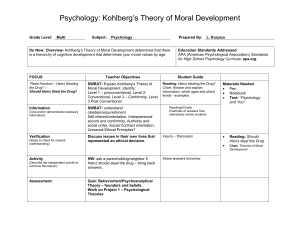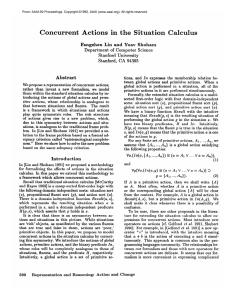Kohlberg's Stages of Moral Development
advertisement
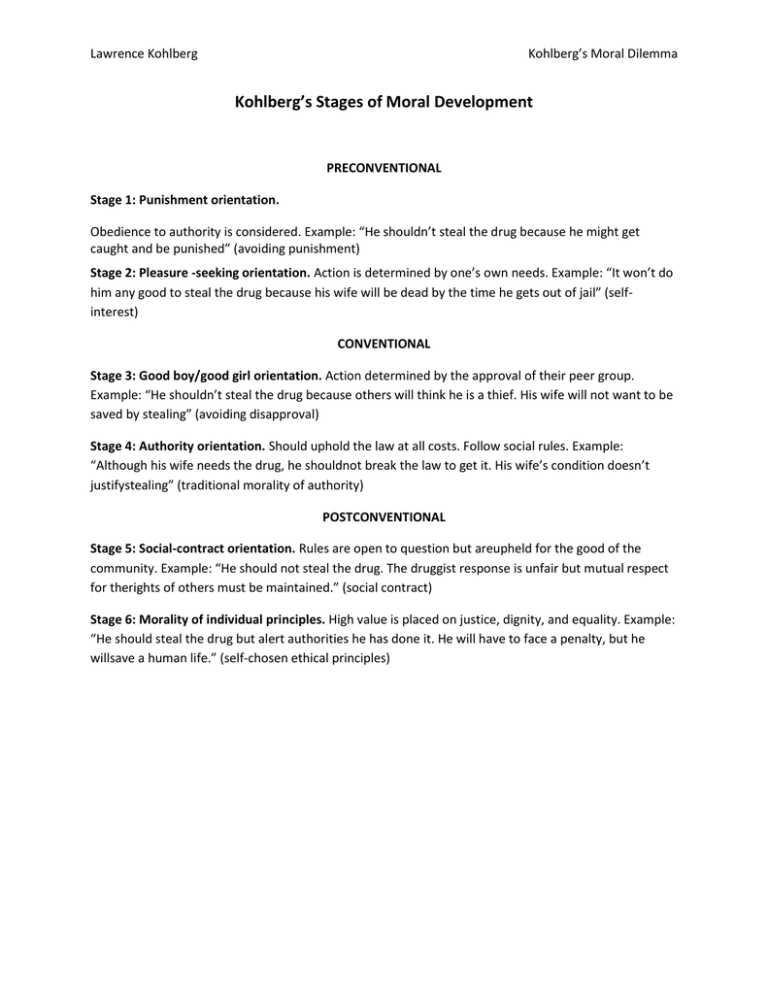
Lawrence Kohlberg Kohlberg’s Moral Dilemma Kohlberg’s Stages of Moral Development PRECONVENTIONAL Stage 1: Punishment orientation. Obedience to authority is considered. Example: “He shouldn’t steal the drug because he might get caught and be punished” (avoiding punishment) Stage 2: Pleasure -seeking orientation. Action is determined by one’s own needs. Example: “It won’t do him any good to steal the drug because his wife will be dead by the time he gets out of jail” (selfinterest) CONVENTIONAL Stage 3: Good boy/good girl orientation. Action determined by the approval of their peer group. Example: “He shouldn’t steal the drug because others will think he is a thief. His wife will not want to be saved by stealing” (avoiding disapproval) Stage 4: Authority orientation. Should uphold the law at all costs. Follow social rules. Example: “Although his wife needs the drug, he shouldnot break the law to get it. His wife’s condition doesn’t justifystealing” (traditional morality of authority) POSTCONVENTIONAL Stage 5: Social-contract orientation. Rules are open to question but areupheld for the good of the community. Example: “He should not steal the drug. The druggist response is unfair but mutual respect for therights of others must be maintained.” (social contract) Stage 6: Morality of individual principles. High value is placed on justice, dignity, and equality. Example: “He should steal the drug but alert authorities he has done it. He will have to face a penalty, but he willsave a human life.” (self-chosen ethical principles)
